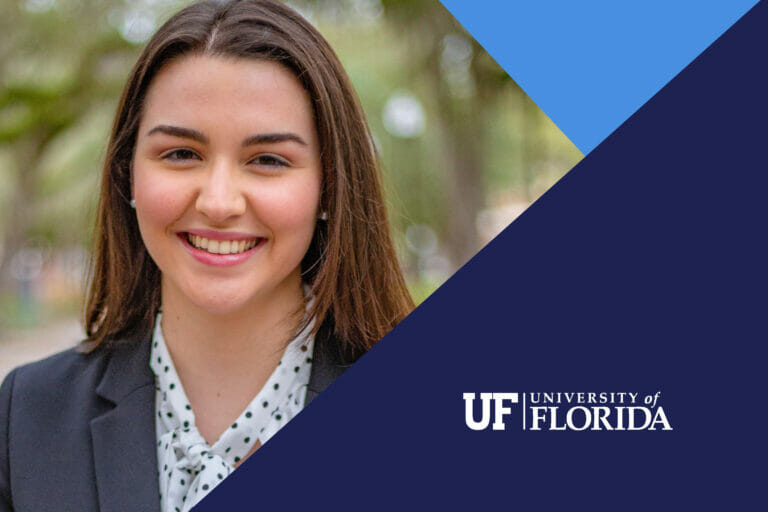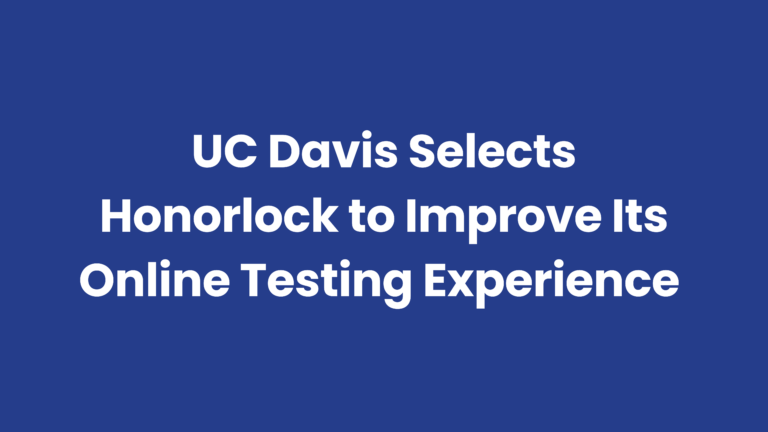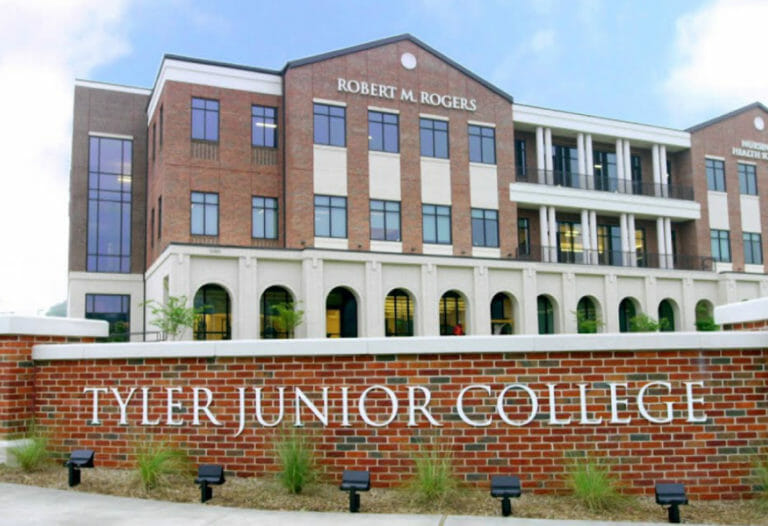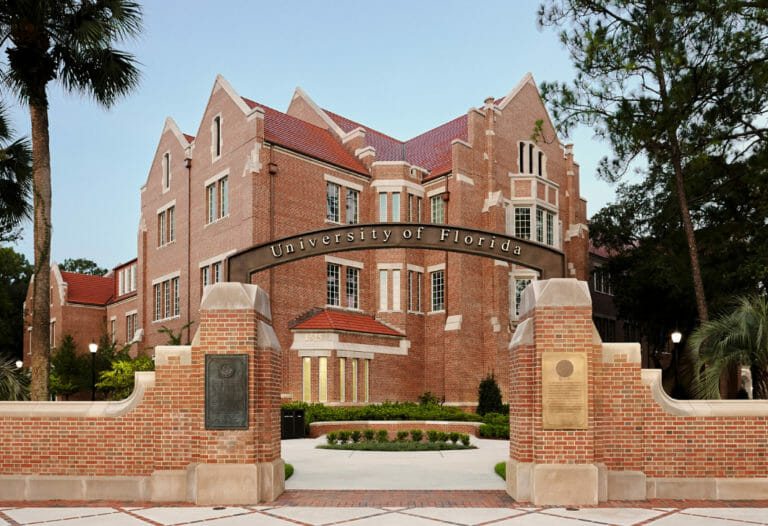
Paul Fisher, Chief Information Officer
“What sets Honorlock apart is the ability to customize online exams to meet the differing needs of our faculty… They really get to decide their own rules for the exams rather than institution-wide rules.”
Building a culture of academic integrity while securing & affordably scaling online exams
Paul Fisher started at Seton Hall in 1997 when “online learning” meant mailing cameras out to students and watching them take exams. Thankfully, technology has come a long way since then, and Seton Hall has been at the forefront by thoughtfully using technology to improve teaching and learning online and in the classroom.
As Seton Hall’s Chief Information Officer, and former Associate CIO and Director of the Teaching and Learning Technology Center, Fisher leads efforts to strategically integrate learning technology across the university. An important component of online assessments at Seton Hall is the use of online proctoring to protect academic integrity and support students and instructors throughout the assessment process
Moving to remote learning in a hurry
Seton Hall transitioned to fully remote learning when COVID started. During this time, they piloted three online proctoring platforms and gathered feedback from faculty and students to determine which should be used moving forward.
However, the feedback from the pilots highlighted issues:
- Cost and scalability
- Lack of exam flexibility and customization
- Privacy and security concerns
- Leaked exam questions and answers
That’s when Seton Hall tried Honorlock and made the switch. Here’s why.
Honorlock helped Seton Hall scale proctored testing from a cost perspective
“Other solutions were not scalable from a cost perspective,” Fisher said.
These proctoring services weren’t scalable for two reasons:
- Only using live proctors (a person watching multiple students at once) is more expensive, and scheduling can be an issue.
- Variable costs can add up quickly if the proctoring service charges per hour and exams take longer than expected.
However, Honorlock’s flat-rate cost per student or exam helps institutions predict testing costs and the avoid variable costs of remote proctoring.
Quick and simple implementation and LMS integration
“The implementation of Honorlock was one of the easiest implementations of technology I’ve ever done,” Fisher said.
Part of what streamlines the implementation process is the quick and simple LMS integration. Whether it’s Blackboard, Canvas, D2L, Moodle, OpenLMS, or Docebo, integrating Honorlock only takes about an hour to complete.
In addition, Honorlock’s team project manages the implementation to help ensure success. After implementation was complete, faculty members were trained and prepared to start proctoring online tests.
Flexible and easy-to-use for faculty and students
Faculty quickly learned how to use Honorlock’s online proctoring software for customized exams in just a few clicks.
“Honorlock gave faculty more freedom and the ability to do more and that’s the best part for them. They really get to decide their own rules for the exams rather than institution-wide rules,” Fisher said.
Fisher gave a common example that faculty encounter, “A student may tell the professor that they aren’t able to be alone in the room, or that they’ll have to sit on their bed during the exam because they don’t have a desk. Faculty can take that feedback into consideration as they make rules for their proctored exams.”
Thanks to the direct LMS integration, the test experience is basically the same for students and faculty with the addition of a few extra clicks:
- Faculty create exams in the LMS like they already do, click to choose which proctoring features to use, and review time-stamped reports afterward.
- Students simply log into the LMS, verify their ID, and launch the proctored exams.
Faculty don't have to use class time for testing
“Many faculty say they’ll never use class time for tests again,” Fished said. He explained that because Honorlock is available 24/7/365, students can take their proctored tests outside of class and get support if they need it. This way, faculty can spend more time teaching instead of testing during class.
Faculty can proctor exams in different formats to better assess knowledge and skills
Part of Seton Hall’s status as a leader in education is its focus on creating a diverse, collaborative, and rigorous learning environment for its 10,000 students across more than 90 majors.
The focus on diversity and rigor is evident during online assessments as well. Faculty at Seton Hall use Honorlock’s extensive proctoring features to test students beyond traditional test question formats, such as multiple-choice and true or false.
“What sets Honorlock apart is the ability to customize online exams to meet the differing needs of our faculty,” Fished said.
An example of this customization and flexibility is highlighted with the ability to proctor nontraditional exams. “The accounting programs use Honorlock to proctor tests where students are using software to fix balance sheets and other similar documents, while other programs use it for short answer and essay questions,” Fisher explained.
The ability to offer these nontraditional alternative assessments, sometimes referred to as authentic assessments or competency-based assessments, proves that students are prepared to apply what they’ve learned in the real world and gives students different ways to show what they know.
Fished explained that while the assessments can be rigorous, they’re crucial for success, “They have a purpose. If students aren’t going through those kinds of things, they may not be prepared for the next level or applying it in a real situation.”
Reducing privacy concerns related to proctored exams
With any educational technology, students, faculty, and institutions have questions about privacy and data security. They want to know what data the remote proctoring software has access to, how it’s collected, and what’s done with their data.
“Educating students as to why we use Honorlock and that their data is kept under the strictest confidence helps students,” Fisher said.
This continual security education assures students that their data will never be sold or shared, the only information required to proctor an exam is collected (name, course number, etc.), and the proctoring software doesn’t have access to students’ devices, operating systems, or networks.
Academic integrity is about more than technology
At Seton Hall, creating a culture of academic integrity is a comprehensive effort that includes more than remote proctoring and other educational technologies. Faculty emphasize genuine, open communication with students to help build a connection, develop trust, and encourage academic integrity.
“Faculty are ultimately responsible for creating a culture of academic integrity in the classroom. Technology is a tool that helps maximize academic integrity efforts, but faculty are the leaders,” Fisher said.
Fisher recommends a few tips to help establish academic integrity:
- Communicate the impact and importance of academic integrity from day one
- Explain what is expected of students and what they can expect from you
- Take measures to help students prepare for online exams
“Talk to students about academic integrity from the first day of class and keep infusing it into your language. Educate them about what proctoring is and why it’s used. It isn’t used because faculty don’t trust students; it’s to create a level playing field,” Fisher explained.
He recommends using practice exams to help students prepare for what to expect. Practice exams should mimic the format of a real exam, but they shouldn’t be graded. This allows students to get set up and get comfortable with the technology used during the assessment and see how it works. And Fisher appreciates the fact that Honorlock does not charge for practice exams.
As Seton Hall continues to advance in online teaching and learning and scales online assessments, Honorlock is a clear part of their strategy moving forward.
“Honorlock has become a part of our basic toolset and the need for it is obvious to our technology professionals, instructors, and even students,” Fisher said.
About Seton Hall University
One of the country’s leading Catholic universities, Seton Hall University has been developing students in mind, heart and spirit since 1856.
Home to over 10,000 undergraduate and graduate students and offering more than 90 rigorous majors, Seton Hall’s academic excellence has been singled out for distinction by The Princeton Review, U.S. News & World Report and Bloomberg Businessweek.















